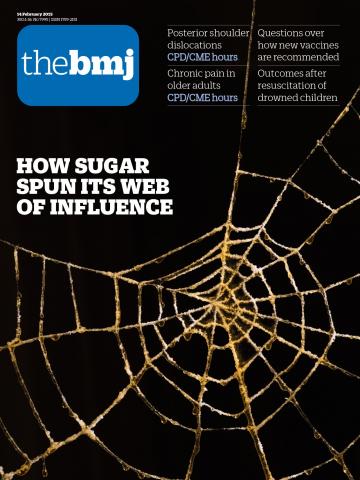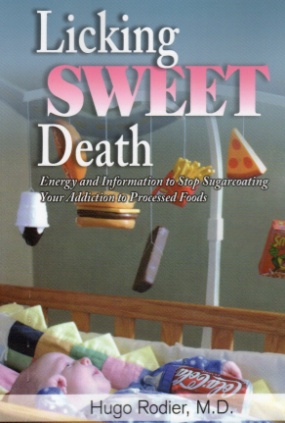It’s been a year since I stopped taking health, fed up with a system that forces doctors to treat symptoms and overuse testing and drugs. Every day I read one or more articles about our Health Care system institutionalizing aggressive “standards of care,” and “defensive medicine” leading to more health problems, not less.[1] Excessive and aggressive interventions are chiefly undertaken to “feed the beast,” a chaotic and expensive system hell-bent in maximizing profits, not the health of their patients. Doctors afraid of being sued are encouraged to prescribe every treatment and run every test available. Of course, there are times when such aggressive behavior is justified, like in an emergent situation. But, the vast majority of people may be treated conservatively; if no resolution or improvement is seen, then more involved testing and treatments are always available and may be discussed frankly and openly with patients to ponder their choices. Unfortunately, our rushed health care system does not have the time to do this.
Study the first article in this newsletter, one of many questioning mammograms, a test the Swiss have quit doing. This is not a call to imitate them, but to ponder its overuse. If a doctor and patient had enough time to discuss the provenance of breast cancer—xenoestrogens in the environment[2]—they would be able to come up with concrete, practical ways to cut down on exposure and maximize ways to detoxify them from the body. BTW, have you looked into Thermograms? They pick up heat from the breasts without radiating them. Unfortunately, they are not covered by insurance. Hugo Rodier, MD
Mammograms may lead to overdiagnosis of breast cancer, study suggests
“ABC World News Tonight (1/9, story 13, 0:20, Muir) reported on “a 17-year study suggesting one of three tumors discovered through mammograms may be treated unnecessarily.”
Reuters (1/9, Rapaport) reports that the research, published online in Annals of Internal Medicine, suggests “widespread breast cancer screening may catch more small, slow-growing tumors that are unlikely to be fatal without curbing the diagnosis of advanced cancer cases.”
The NPR (1/9, Stein) “Shots” blog reports that investigators who “followed thousands of women in Denmark over more than a decade…found that perhaps one-third of the abnormalities detected by mammograms may never cause health problems.”
According to TIME (1/9, Park), “the findings of the new paper support growing data…that breast cancer is over-diagnosed, with small growths that likely aren’t going to progress into cancer being detected – and treated – more than they need to be.”
Along the same lines here is an update on the extremely overused acid blockers like the purple, pill, Prilosec, etc.: they cause serious mutations in our intestinal flora, a problem that can have devastating consequences throughout the body, like altering your ability to process food in the gut,[3] now shown to affect our metabolism and thus increase our chances of putting on weight.[4] We may also get infected with C. difficile and Campilobacter,[5] bacteria that can ruin your day. The dire gastrointestinal consequences of using those acid blockers are the first problems addressed by the Journal of Clinical Nutrition in its first 2017 issue.
SNAKE OIL VINDICATED
You may have been confused last year when you read the unfortunate article—probably written by Big Pharma hacks—that supplementing Omega oils is a waste of money. Despite scores of articles published in the best of journals affirming the value of doing so we still see an occasional biased, poorly designed study opposing the overwhelming body of evidence that led to the “manufacturing” of a drug, Lovaza, allegedly a “stronger” Omega oil. It turns out to be much more expensive, too. There is something rotten in Denmark? Do you smell a rat? Or, is it a fish? Read the evidence for yourself.
Omega-3 fatty acids lower heart disease risk even for those already at elevated risk, study shows[6]
“Reuters1(/3, Rapaport) reports “Omega-3 fatty acids in fish and dietary supplements are associated with lower odds of heart disease even in people already at elevated risk because of excessive levels of fats or bad cholesterol in their blood,” according to a research review. Researchers analyzed “data from 18 trials that randomly assigned about 93,000 people to get a certain amount” of Omega-3s, and “results from another 17 previously published trials that observed about 732,000 people over long periods of time.”
“Snake oil” was sold—and bought—by many for several conditions in the Wild West because it worked. Make sure you have fish, avocados, and nuts in your diet. Also, lots of veggies (high in magnesium, as are almonds) and very little, if any, refined sugars and oils. Then, you will drop your risk of heart disease significantly, especially if you get off the couch. Study the evidence below.
Diet rich in magnesium may help reduce risk of heart disease, diabetes, research review suggests
Reuters (12/30, Rapaport) reported that a “research review” published online in BMC Medicine suggests “a diet rich in magnesium…may help lower the risk of chronic health problems like heart disease and diabetes.” Investigators “analyzed data on dietary magnesium and chronic disease from 40 studies published from 1999 to 2016 on more than one million people.” The data indicated that “compared with people who had the lowest levels of magnesium in their diets, people who got the most magnesium were 10 percent less likely to develop heart disease, 12 percent less likely to have a stroke and 26 percent less likely to develop diabetes.”
Fish oil use during pregnancy linked to lower asthma
“The New York Times (12/29, A4, Grady, Subscription Publication) reports that research indicated “women who took fish oil during the last three months of pregnancy significantly” reduced the likelihood “that their children would develop asthma.” The findings were published in The New England Journal of Medicine.
The AP (12/28, Marchione) reports that the investigators found that “17 percent of kids whose moms took fish oil developed a breathing problem by age 5 versus 24 percent of the comparison group – a reduction in risk of about one-third.” Additionally, “there…were fewer cases of bronchitis, pneumonia and other such infections in the fish oil group.”
Reuters (12/28, Emery) reports, however, that “the real benefit seemed to be exclusively among the children whose mothers started out with low levels of the two key ingredients in fish oil – eicosapentaenoic acid (EPA) and docosahexaenoic acid (DHA).”
If you have asthma lay off cured meats, that is, bacon, hotdogs, cold cuts.[7]
Exercising like a “weekend warrior” may be as beneficial as working out daily, study suggests
“The AP (1/9, Marchione) reports that research published in JAMA Internal Medicine suggests individuals “who pack their workouts into one or two sessions a week lower their risk of dying over roughly the next decade nearly as much as people who exercise more often.”
Reuters (1/9, Rapaport) reports that investigators looked at survey data on more than 63,000 “people from 1994 to 2012 to see how different exercise patterns influence the risk of death from all causes, heart disease and cancer.” Study “participants…were typically followed for almost nine years.”
Newsweek (1/9, Firger) reports that the study indicated “the risk of death from all causes was about 30 percent lower for weekend warriors, compared with adults who maintained a sedentary lifestyle.” Meanwhile, weekend “warriors had a 40 percent lower risk of cardiovascular death and an 18 percent lower risk for cancer-related death.” The data also indicated that “the mortality rates of weekend warriors were” approximately “the same as those who claimed to exercise more than two days a week but for shorter durations.”
Diet-induced obesity may suppress impulse to move around
“In “Science Now,” the Los Angeles Times (12/29, Healy) reports that research in mice published in Cell Metabolism “offers evidence that diet-induced obesity alters the brain’s functioning in ways that suppress the natural impulse to move around.”
STAT (12/29, Samuel) reports that the investigators found that “the activity of a particular dopamine receptor linked to movement goes down as mice gain weight on a high-fat diet.” Thus, the rodents “slow down and they move less.” When the investigators “restored the activity of that dopamine receptor…the mice started moving more, even though they were still obese.” The study also indicated that mice that were lean that did not have the receptor also did not “move around as much.”
When people get up and move, they tend to be happier
“The New York Times (1/25, Reynolds, Subscription Publication) reports in “Well” that “when people get up and move, even a little, they tend to be happier than when they are still,” researchers found in a large study after using “cellphone data to track activities and moods.” Overall, investigators found that “people who move are more content than people who sit.” The Times also points out, “Epidemiological studies have found…that people who exercise or otherwise are active typically are less prone to depression and anxiety than sedentary people.” The findings were published online Jan. 4 in PLOS One.”
Much like Big Pharma gets away with studies disparaging items that remain—to their chagrin—over the counter, we still see studies planted by the Sugar Industry trying to defend their garbage food. Take a look,
New review discredits advice on cutting sugar intake
“The New York Times (12/19, O’Connor, Subscription Publication) reports new research published in the Annals of Internal Medicine argued that “warnings to cut sugar…are based on weak evidence and can’t be trusted.” The study received “sharp criticism from public health experts because the authors” were funded by the International Life Science Institute, a group funded by multinational food and agrochemical companies including Coca-Cola and General Mills. Critics “say the medical journal review is the latest in a series of efforts by the food industry to shape global nutrition advice by supporting prominent academics who question the role of junk food and sugary drinks in causing obesity, type 2 diabetes and other health problems.”
Just in case you need to review the evidence on how toxic refined sugars are…


“Crystallizing sugar science,” J. Nature Medicine 2016;22:1369
- “Pharmaceuticals and Public Health,” JAMA 2016;316:2083 ↑
- “Vehicular Traffic–Related Polycyclic Aromatic Hydrocarbon Exposure and Breast Cancer Incidence: The Long Island Breast Cancer Study Project (LIBCSP),” J. Ennviron Health Perspect; 2016DOI:10.1289/ehp.1307736 ↑
- “The role of metabolism (and the microbiome) in defining the clinical efficacy of dietary flavonoids,”
Am J Clin Nutr 2017;105:10-22 ↑ - “Gut permeability, obesity, and metabolic disorders: who is the chicken and who is the egg?” Am J Clin Nutr 2017;105:3-4 ↑
- “Acid suppression medications and bacterial gastroenteritis: a population-based cohort study,” BJCP JAN 2017 ↑
- “A Meta-Analysis of Randomized Controlled Trials and Prospective Cohort Studies of Eicosapentaenoic and Docosahexaenoic Long-Chain Omega-3 Fatty Acids and Coronary Heart Disease Risk,” J. Mayo Clinic Proceedings January 2017Volume 92, Issue 1, Pages 15–29 ↑
- J. Thorax Published online December 20, 2016 ↑


